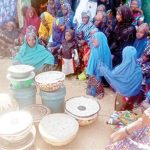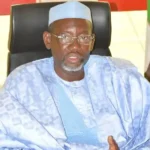The Nigerian Maternal, Newborn and Child Health programme (MNCH2), a five-year UK Department for International Development (DfID), says it is supporting six northern states to access basic healthcare services.
Mr Dayyabu Yusuf, the MNCH2 Team Leader, Kano State and Basic Healthcare Provision Fund (BHCPF) focal person, DfID, disclosed this on Friday at a two-day workshop for State-led Accountability Mechanisms on BHCPF in Dutse, Jigawa.
“MNCH2 is working in six northern states – Kano, Jigawa, Yobe, Katsina, Zamfara and Kaduna, the major mandate for this programme is to support the various states and local government councils to improve the healthcare services especially for women and children.
“We work closely with the Federal Ministry of Health to ensure all the national health policies and guidelines are domesticated and implemented in the various states as designed at the national level,” he said.
Yusuf said one of such programmes was Basic Health Care Provision Fund (BHCPF), which had been provided by the National Health Act 2014.
“The Act stipulated that Federal Government will contribute at least one per cent of its consolidated revenue funds dedicated for provision basic minimum healthcare package for especially the poor and vulnerable Nigerians.
“The federal government has kept to this commitment in 2018. About N55 billion was appropriated in the federal government budget which has already been disbursed to the states that met the basic standard readiness requirements.
“The funds are meant for service provision at Primary Health Care (PHC) facilities and the federal government is using this fund for actualisation of one functional PHC facility per political ward.
“State governments are expected to select one PHC facility in each political ward and ensure that the facility is benefiting from the fund.
“They are also expected to pay their own counterpart funding into the basket so that the human resources, basic infrastructure and community enlightenment that are required for the implementation of the programme were in place,” the official said.
He said the reason was to avoid unacceptable maternal and child mortality rates.
“This is to also avoid the terrible condition and poor indices that we have in healthcare facilities in the country are improved over time. BHCPF is not a project but a programme of federal government that had come to stay.’’
He emphasised that the desire was to drive down and ensure that there is functional PHC facility in each and every political ward in the country.
“We want to ensure that every woman and children under the age of five can work into PHC facility and have access to quality healthcare service without paying a Kobo.
“That is why we are currently providing orientation to the very important stakeholders, especially the CSOs and the media, for them to really understand and to do what they are known to be best at.
“That includes provisions for education and mobilising all the actors to ensure that they discharge what is supposed to be their responsibility in line with the implementation of this programme,’’ Yusuf explained.
Alhaji Kalli Lawan, the Chairman, Yobe State Accountability Mechanisms, one of the participants from Yobe, described the workshop as timely and satisfactorily.
He said it has deepened the knowledge of most of the participants on the programme. (NAN)

 Join Daily Trust WhatsApp Community For Quick Access To News and Happenings Around You.
Join Daily Trust WhatsApp Community For Quick Access To News and Happenings Around You.


